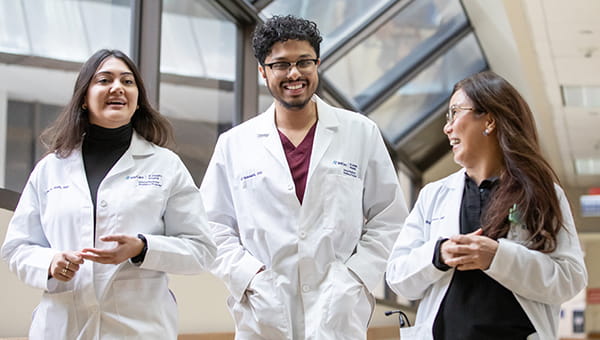Why Choose Us
The BayCare Psychiatry Residency Programs prepare residents to become well-rounded, compassionate community psychiatrists ready for independent practice. As part of BayCare, West Central Florida’s largest academic health care provider of behavioral health services and a leading not-for-profit health system with 16 hospitals, our commitment to addressing the behavioral health needs of our community has been formally recognized by the State of Florida. Being a leader in this field means residents can gain broad, hands-on experience across inpatient, residential, detoxification, rehabilitation and outpatient settings. Our training emphasizes clinical excellence, evidence-based psychopharmacology and psychotherapy across diverse patient populations. This ensures graduates are confident, skilled and prepared to meet the mental health needs of the communities they serve.
Our Programs
Program Highlights

Leadership in Behavioral Health
From partnerships with Florida State University’s College of Medicine to launching the state’s first behavioral health urgent care center, BayCare offers residents firsthand experience with behavioral health care innovation. Recognized by the State of Florida, our system is deeply committed to advancing integrated, community-focused mental health services. Residents get to train alongside well-developed teams, learning not only to treat illness but also to treat people.
Resident Wellness
We recognize the demands of residency and have made supporting both the physical and emotional health of our residents a priority. Our curriculum promotes a work-life balance through dedicated wellness days, resiliency education, workshops and mindfulness opportunities. Residents have access to Employee Assistance Program resources and the Doc Be Well initiative. The standard of compassion we hold for patient care is reflected in how we support our residents from day one.


Clinical Research
Research plays a vital role in advancing patient care across BayCare. As a leading academic health system in West Central Florida, we encourage a culture of inquiry, innovation and collaboration. Residents have the opportunity to participate in clinical research alongside experienced mentors, gaining exposure to study design, data analysis and evidence-based practice. By empowering residents to help advance patient care through clinical research, a foundation is built that promotes lifelong learning and academic success.
Salary and Benefits
BayCare offers a competitive resident salary, along with a comprehensive benefits package that includes medical, dental and vision coverage. It also covers select professional expenses such as licensing fees and membership dues. These benefits are designed to help residents both personally and professionally throughout training. Click the “Learn More” button for more information about the salary and benefits offered.


Child and Adolescent Psychiatry
BayCare's Child and Adolescent Psychiatry Fellowship program allows psychiatry residents to continue their training with specialized focus on psychiatric treatment for children and teenagers. Fellows gain experience in school settings, Community Action teams, and forensic psychiatry.

